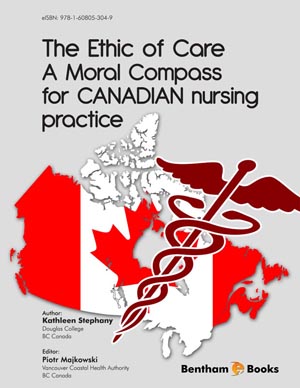Abstract
The relationship between sound moral principles and care is presented. Although the ethic of care is relational, contextual and empathetic it also draws upon existing knowledge to inform decision-making. Additional tools such as the moral principles of integrity, veracity, fidelity, respect for selfworth, beneficence, non-maleficence, autonomy and courage are utilized in conjunction with the ethic of care. In this manner ethical action occurs in the context of nurturing the human being who is experiencing the problem within the framework of all that is going on. Integrity is proposed as the standard that guarantees all other values. Moral courage is portrayed as the ability to adhere to the fundamental law of integrity, ethics and perseverance even in the face of rejection or opposition. Client advocacy is deemed to be closely associated with the practice of moral courage. Not only are nurses encouraged to incorporate moral principles of high virtue into their way of being, they are also directed to strive to see the inherent good in every person, regardless of the circumstances. In this manner nurses are ethically obligated to offer competent and compassionate care even in the presence of less than desirable client behaviour. It is pointed out that this edict may sometimes present itself as a profound ethical test. Narratives are used to help illuminate the notions of morality in the context of a person’s story and the case study at the end of the chapter is particularly challenging when nurses are asked to care for a person who is accused of the brutal murder of a child.
Keywords: Hope, Humility, Knowing, Patience, Traits, Presencing, Trust, Unconditional Positive Regard, Warmth, Moral principles, Integrity, Veracity, Fidelity, Victim blaming, Beneficence, Non-maleficence, Self-worth, Autonomy, Parentalism, Paternalism







